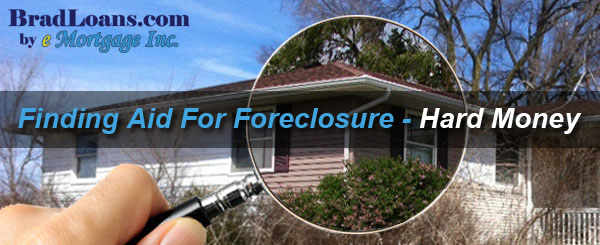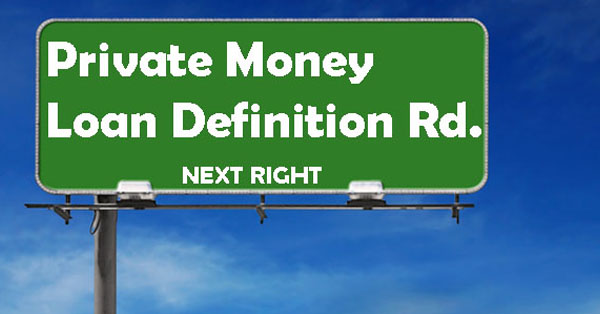
If you are in the process or just considering getting into the rehab and re-sale of the real estate business you need to understand that in this type of business – things will go one of two ways: One of those ways would be to make a profit, and the other way would be to lose your investment. Investing in real estate in order to re-sale it for a profit has a lot of risks involved, however, the rewards will more than make-up for the risk in the long run, when the process is done in the correct matter. The first risk is one that may not have ever occurred to you, and that is with the lender that is helping you to get the Hard Money Loan.
Never take for granted that a lender cares whether or not you gain a profit, and certainly don’t rely on the lender to give you all of the information regarding your loan, in fact, what information they do tell you may not be the all of the information you need to know, or it may not even be true. These lenders deal with dozens of people every day and to be honest about it; they couldn’t care less if you gain or lose on the deal, so long as they make their money back, plus the large interest. If you want to turn things around and put yourself in control of the situation be sure to as the lenders all of the following questions up front.
Ask the lender these 13 questions:
(1). Is there a minimum credit score to get the Hard Money Loan?
Our answer to this is…‘No’, our policy requires no minimum credit score in order to qualify for any direct loan we offer. In addition to that, we do have a minimum requirement for your credit score when dealing with partner loans, which is a low of only 575.
Their answer to this is…‘Yes’,in general, all other lenders will have a credit score minimum requirement for (any and all of) the loans they offer. The minimum credit score being at or above 700.
(2). Is there a minimum down payment?
Our answer to this is… ‘No’, There is no minimum down payment to make with all of our direct loans. And through partner loans the minimum down payment is a low down payment of only $7,000 to $10,000.
Their answer to this is…‘Yes’, other lenders ask a minimum down payment of 20-25% based on a loan of $100,000 (this is extremely high).
(3). Is there any previous experience in residential rehab and re-sale needed?
Our answer to this is…‘No’,Experience is not required for any of our loans.
Their answer to this is…‘Yes’,other lenders generally will require the experience of two previous Fix & Flips.
(4). Is there any type of resources that you provide to help me in succeeding?
Our answer to this is…‘No’, Our business wants to see you succeed the first time around with us, and that is why we will be providing you with everything needed to see that you are profitable your first time out.
Their answer to this is…‘Yes’,other lenders aren’t concerned whether you succeed or not, in fact, some would preferred to foreclose on you.
(5). Are you the type that will double check contractors bids to make sure they are correct?
Our answer to this is…‘Yes’, for us to be absolutely certain that you are getting the best prices to increase your profits.
Their answer to this is…‘No’, other lenders couldn’t care less how much repairs are going to cost you, nor do they care if you make any profits.
(6). Are you going to oversee any repair work to be done, and see to it that everything is finished right – ensuring the home is going to sell?
Our answer to this is…‘Yes’, we make sure of this for you because our goal is to help minimize the term of your loan and also to help to increase your profits.
Their answer to this is…‘No’, other lenders prefer to drag the loan term out as long as possible, as they receive more interest that way.
(7). Will you be doing a detailed profit estimate to know whether I will actually make money off of the deal?
Our answer to this is…‘Yes’, we certainly will, we do this to be sure of what your getting into, and this is because we want your business again someday.
Their answer to this is…‘No’, other lenders take for granted that you know what you were getting into and leave it at that.
(8). Will I be receiving an itemized list from you showing all my closing costs?
Our answer to this is…‘Yes’, All closing costs will be given in detail from the get go.
Their answer to this is…‘No’, other lenders try not to bring up the closing costs until its closing time.
(9). If there are any third party costs will I also get a detailed list of those?
Our answer to this is…‘Yes’, any third party costs will be given to you in detail stating what each specific cost is for, including the agent fees, title gees, transfer taxes, and utilities, as well as any other costs that sometimes get overlooked.
Their answer to this is…‘No’, other lenders tend to overlook this altogether, which leaves you with an expressive surprise later on.
(10). Are there any penalties for pr-payments?
Our answer to this is…‘No’, so when you rehab and re-sale a property in, let’s say three months – you only pay interest for those three months.
Their answer to this is…‘Yes’, other lenders are charging a flat rate on interest, for instance, they charge a flat rate of 6 – 12 months interest regardless of how early you pay the loan off.
(11). Is the loan based on the after repair value (ARV)?
Our answer to this is…‘Yes’, our loans cover up to 65% of the after repair value, that means that all of your costs, such as the purchase price, the interest on the 65%, and any repair costs, which means that if everything can be done for the 65% or under we can loan you 100% on the financing needed, and there would be no out of the pocket expense for you.
Their answer to this is… ‘No’, other lenders usually will only loan out between 60 and 80% of the price to purchase before any repairs.
(12). How about my points, interest, and repair costs, do you fund those?
Our answer to this is… ‘Yes’, we work to help you to find great deals, and anytime you find it we will fund all of your expenses for you.
Their answer to this is… ‘No’, other lenders are not willing to do this as they are in it to make money when you don’t succeed.
(13). Do I have to give you any money before the repairs are finished and the home is sold?
Our answer to this is…‘No’, we want to see you make profits and that is what we let you concentrate on, so no, you do not pay us anything before hand.
Their answer to this is… ‘Yes’, other lenders want you to make payments on the interest while you’re still repairing the home to sell.
Our mission is to always have your wishes and interests in mind, and our goal is to keep a satisfied customer by ‘opening the door to their financial freedom’, and so that our customers will return to us the next time they need a loan. Furthermore, we do not anticipate gain from any of customers. Our gain will come from treating our customers fairly, and in due time.
When we hold our heads up its not to look into the clouds, but because we can feel proud, and good about the way we do business. By helping you succeed the first time around, we are hoping that you will return again, and again, and even tell of your great experience to all your friends and family so they’ll also come to us.
Give us a call today if you are interested in hard money loans for fix and flip, finishing construction,refinancing your mortgage, buying land, or need loans for other investment opportunities but have bad or no credit. Give Brad Loans a call today at (602) 999-9499.





